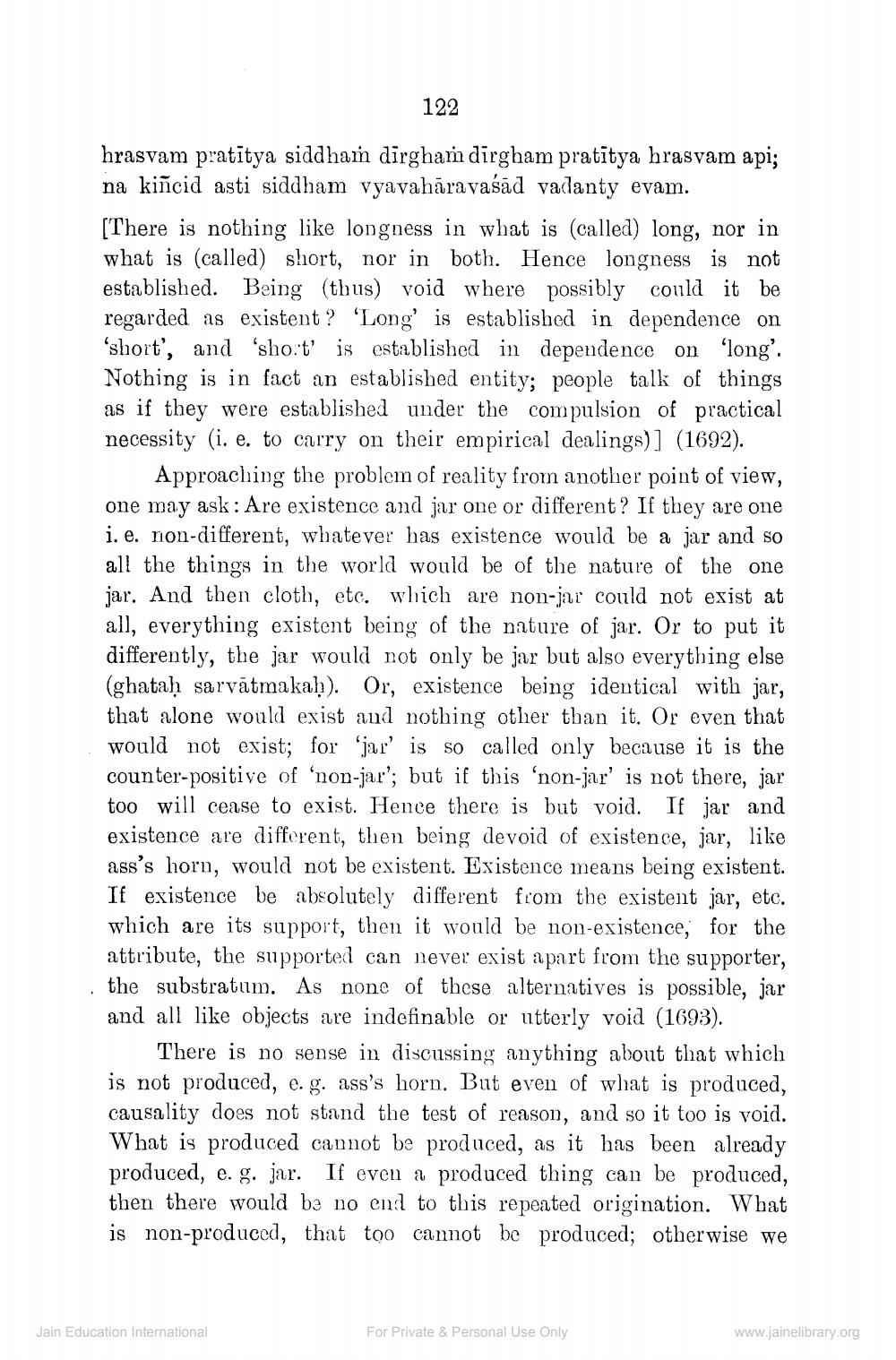________________
122
hrasvam pratītya siddham dirghamdirgham pratītya hrasvam api; na kiñcid asti siddham vyavahāravaśād vadanty evam. [There is nothing like longness in what is (called) long, nor in what is (called) short, nor in both. Hence longness is not established. Being (thus) void where possibly could it be regarded as existent? 'Long' is established in dependence on 'short', and 'short' is established in dependence on 'long'. Nothing is in fact an established entity; people talk of things as if they were established under the compulsion of practical necessity (i. e. to carry on their empirical dealings)] (1692).
Approaching the problem of reality from another point of view, one may ask: Are existence and jar one or different? If they are one i. e. non-different, whatever has existence would be a jar and so all the things in the world would be of the nature of the one jar. And then cloth, etc. which are non-jar could not exist at all, everything existent being of the nature of jar. Or to put it differently, the jar would not only be jar but also everything else (ghataḥ sarvātmakaḥ). Or, existence being identical with jar, that alone would exist and nothing other than it. Or even that would not exist; for 'jar' is so called only because it is the counter-positive of 'non-jar'; but if this ‘non-jar' is not there, jar too will cease to exist. Hence there is but void. If jar and existence are different, then being devoid of existence, jar, like ass's horn, would not be existent. Existence means being existent. If existence be absolutely different from the existent jar, etc. which are its support, then it would be non-existence, for the attribute, the supported can never exist apart from the supporter, the substratum. As none of these alternatives is possible, jar and all like objects are indefinable or utterly void (1693).
There is no sense in discussing anything about that which is not produced, e.g. ass's horn. But even of what is produced, causality does not stand the test of reason, and so it too is void. What is produced cannot be produced, as it has been already produced, e. g. jar. If even a produced thing can be produced, then there would be no end to this repeated origination. What is non-produced, that too cannot be produced; otherwise we
Jain Education International
For Private & Personal Use Only
www.jainelibrary.org




